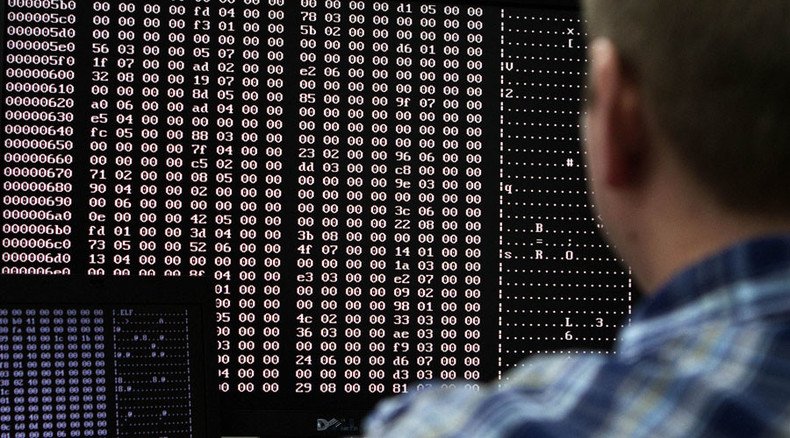'Frontline of the battle is not tanks or planes – it's cyberwarfare'

People underestimate what cyberwarfare can do, but as the infrastructure of all our countries is run over the internet now, an attack on them could make society collapse within days, says Annie Machon, former MI5 agent.
Germany passed legislation which requires over 2,000 essential service providers to implement new minimum information security standards. If they fail to do so within two years they are going to face fines of up to €100,000.
READ MORE: Germany passes strict cyber-security law to protect ‘critical infrastructure’
RT: Germany seems to be focusing on offense as much as defense, when it comes to improving their cyber capabilities. Who and what do you think they want to attack?
Annie Machon: I think that is very interesting question: who do you want to attack with the cyberwarfare capabilities? Who precisely is the enemy these days? We know from the Snowden disclosures that Germany itself has been attacked aggressively by the NSA and GCHQ. We know from the Snowden disclosures that Germany itself has been aggressively targeting, attacking and intercepting the communications of its so-called European allies. So, whom precisely are they targeting now and why the army is getting involved as well as the [German foreign intelligence agency] BND [Bundesnachrichtendienst]?
RT: Defense is also highlighted as an important element in the new cyber plan for 2016. How much of this do you think is aimed at Germany’s own allies, the NSA, known now to spy on a host of politicians in Germany?
AM: I think the frontline of the battle these days now is not tanks, is not planes, it is cyberwarfare. Germany is certainly seems to be very willing to be complicit in working with the NSA to wage that war. I’m sure that it is pointing eastwards as well. It is a difficult one to try and predict…
RT: Do you think we’re coming to a time when conventional warfare operations will be used as a supplement to cyber wars, as opposed to the other way around?
AM: I think both will still have a role. However, I think most people underestimate the scope of what cyberwarfare can do. Infrastructure of all our countries is run over the internet now. It’s run by computers, be it electricity, be it the traffic signal control, be it train systems- wherever it is: banking, encryption – everything is dependent on cyber issues. So if you start waging cyberwarfare against the infrastructure of a nation state, then the whole nation state could collapse within a few days. If those basic levels of control, those basic levels of enablement for the society are taken away, then society will begin to collapse very quickly particularly in cities. I think this is very effective way of waging warfare if they chose to do it. The follow-up would then be with more conventional ways.
RT: Would you say Germany is developing with the times here, or are they behind the curve in terms of cyberwarfare, how do they measure up to say, the US?
AM:. … I’m sure they’ve been catching up for years. And that is partly where their dependence on the NSA technical capabilities has evolved from - they needed that to play catch up with the rest of the world. However I think they are very much in the field now. From what I’ve seen, the collusion with the NSA, they are very much part of the certain camp- to wage warfare against the rest of the world in the cyber realm.
RT: When it comes to conventional war – every government has an absolute advantage over regular people in terms of capability but it’s not necessarily the case in cyber space, as you need just a computer and the internet and knowledge of network protocols etc. Do you think we will see any hacker groups taking advantage of this and become more prominent players on the global stage?
AM: I think hacktivist groups are already taking a foot on the stage when it comes to this sort of warfare. We saw this only a couple of weeks ago with the story that German missiles placed in Turkey had been hacked, because they were US designed missiles with US designed software which of course is open to hacking, it has back doors. So this is going to come more, more prominent. And it is bit of sort of David and Goliath type asymmetrical information warfare. I think this is going to become more obvious, more prominent, not just with hacktivist groups but also with smaller countries which don’t necessarily have the military hardware to fight a conventional war. But they can’t push back against big countries with that hardware, and attack that software which runs their weapons. So it is asymmetric warfare, and I think it is going to become more predominant over the next decade or so.
The statements, views and opinions expressed in this column are solely those of the author and do not necessarily represent those of RT.
The statements, views and opinions expressed in this column are solely those of the author and do not necessarily represent those of RT.













